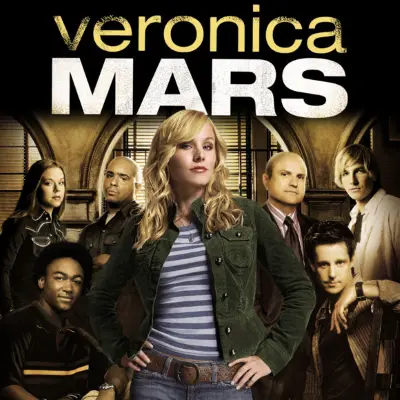Veronica Mars' Hulu revival is able to do what it does best since it already did fan service with the Kickstarter-funded movie
-

"TV revivals have too high a burden placed on them to succeed with any kind of consistency," says Alison Herman. "In bringing back a beloved show, the updated version must pay tribute to its predecessor while theoretically telling a story of its own. To up the degree of difficulty even further, this double responsibility is often squeezed into a fraction of the original’s run time: seven seasons of Gilmore Girls become just four episodes of Gilmore Girls: A Year in the Life; three seasons of Deadwood are condensed into one movie. With such limited real estate, it’s little wonder most revivals tend to go for nostalgia over innovation. Justifying one’s existence can go two ways: giving the people what they want so they come away satisfied, or diverging enough from the template to surpass pale imitation. Give or take a Twin Peaks: The Return, the former tends to win out. The new season of Veronica Mars, though, is fortunate enough not to face this dilemma in the first place. After originally airing for three seasons on UPN and the CW, from 2004 to 2007, the teen-drama-cum-detective-noir has already received the crowd-pleasing treatment: a 2014 feature film, funded with Kickstarter and checking fan-wishlist boxes accordingly...But even though the Veronica Mars movie was arguably just a few years ahead of its time, that premature encore turns out to be something of a blessing. In retrospect, (creator Rob) Thomas characterizes the project as 'like looking at my Twitter feed and seeing what everyone wanted to see and making that more important than the detective case.' This is an accurate description of a movie that accommodates virtually every member of a sizable ensemble cast at the expense of its own plot. It also doubles as an overview of our current moment in pop culture, where everything from The Lion King to Fuller House inverts the typical promise of entertainment: Instead of showing you something you’ve never seen before, it shows you exactly what you’ve seen before to the point of excising anything you haven’t. Five years later, Veronica Mars has learned from its mistakes—or rather, Veronica Mars’ mistakes have freed it to do something new. The fans have long since been serviced. Thomas and his writers can now dedicate themselves to a case that exists as something more than a pretext. The result is, paradoxically, a truer reprise of the first series’ appeal than many revivals that strain much more visibly to channel their inspiration. Instead of reflecting the highlight reel that time and memory have turned Veronica Mars into, this eight-episode fourth season can go back to being Veronica Mars as it actually is."
ALSO:
- Veronica Mars has matured, and so has its writing: "Dialogue is as sharp and hilarious as ever," says Hanh Nguyen, "allowing the Mars clan to shine as they toss out gumshoe bon mots and pop culture references in dry tones, while it embraces the silly as embodied by characters like Dick Casablancas (Ryan Hansen), the King of Spring Break. This levity is balanced by a well-crafted and wide-ranging mystery that includes elements of class warfare, politics, and deep pockets. There are plenty of twists and surprises to be had, all the way to the last nail-biting moments of the case."
- In its cynicism, the fourth season plumbs a hard truth: "Just as Veronica can’t close every case, she can’t ensure that the life she’s building will be a fulfilling one," says Shirley Li. "The original Veronica Mars was in some ways a teenage fantasy—a shunned young woman using her skills to empower herself and her peers. This season, even with its unusually far-fetched plot twists, brings Veronica down to the crushing reality of adulthood."
- Season 4 is a moody repudiation of nostalgia: "Over the course of its eight-episode run, the new Veronica Mars does make a strong argument that it is better equipped to handle the nostalgia problem than nearly any other revival we’ve seen so far," says Constance Grady. "And the result is a sharp, wistful, melancholy season of television that is also a terrifically entertaining murder mystery."
- Veronica Mars avoids the cringeworthy sense of being a zombie series: "The revival tries to return to the things that made Veronica Mars great, but it’s simultaneously aware that, for Veronica, being back in the place where she was in high school is a really bad place to be," says Kathryn VanArendonk. "She’s still working with her father, still skimming the scum off Neptune’s rotten surface, fighting the same battles, and incapable of moving on. As much as the new Veronica Mars is about re-creating the past, it’s also about acknowledging that it would’ve been so much healthier for Veronica to grow up and move on."
- What's most intriguing is Veronica Mars being pushed in directions that risk alienating her devotees
- Veronica Mars coasts on the charm of Kristen Bell and her castmates, yet it struggles to generate tension around a thin and dull season-long arc
- The Veronica revival features one bad decision in a sea of good ones that could tarnish the entire season
- So much care has been taken to recapture the look and feel of Veronica’s world that endless Easter eggs abound
- Creator Rob Thomas didn't want Veronica Mars to become a "nostalgia show": “Kristen (Bell) says she would do it until it’s Murder, She Wrote, and my feeling is for us to survive in that way, more and more episodes have to be about the mystery — about Veronica as a detective — and less of the soap opera personal life.”
TOPICS: Veronica Mars, Hulu, Kristen Bell, Rob Thomas (Writer), Revivals
More Veronica Mars on Primetimer:
